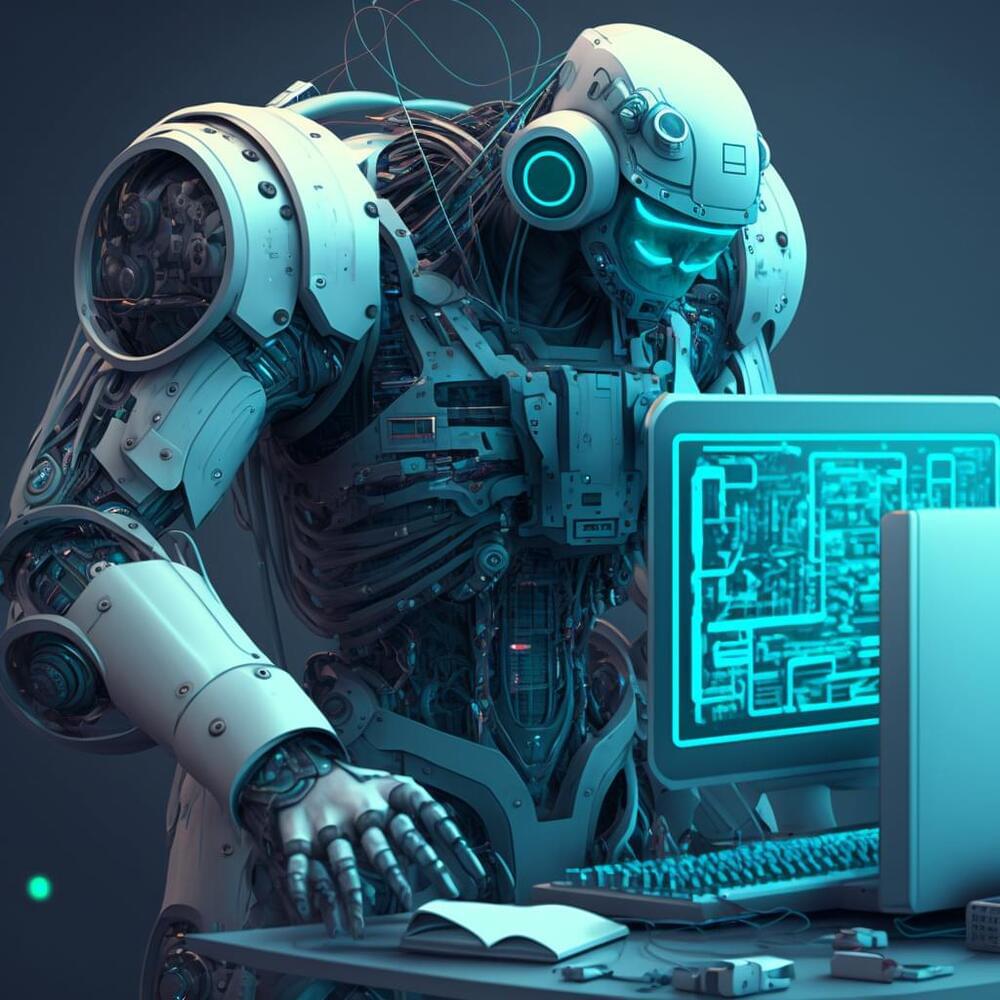A new stage in the history of AI marked by the emergence of a new type of hype.
Category: robotics/AI – Page 1,264



AI’s Future: The Role of Prompt Engineering
“The future of AI is much bigger than anyone realizes — not just in terms of technology, but in its impact on society as a whole.” — Mark Zuckerberg
Prompt engineering is a process of crafting optimized input texts (prompts) to generate accurate results from the artificial intelligence model. By the launch of ChatGPT, prompt engineering is the booming term in internet. Actually what is its deep meaning and is it be the future of AI. Prompt engineering is a relatively new field that focuses on the design and development of systems that can generate human-like prompts, such as text, speech, and images. These prompts can be used to interact with users in a more natural and intuitive way, making it easier for them to understand and use AI-powered systems.
By the advance of artificial intelligence models like ChatGPT, midjourney and stable diffusion which are enriched with high potential people are confused how to use it and what are the optimized prompts that could be used to extract the full potential of these models. One key aspect of prompt engineering is data preprocessing and preparation. This includes cleaning, normalizing, and formatting the data used to train the model, so that it is in the right format and of high quality.

Where Is Tech Going in 2023?
A group of McKinsey’s technology practice leaders have taken a look at what 2023 might hold, and offer a few new year’s tech resolutions to consider: 1) Look for combinatorial trends, in which the sum impact of new technologies create new opportunities. 2) Prep boards for tipping point technologies. 3) Relieve the bureaucratic burden on your engineers to increase their productivity. 4) Look for new opportunities in the cloud. 5) Take advantage of how the cloud is changing security. 6) Take advantage of decentralized AI capabilities — and what this technology might mean for your business model.
Page-utils class= article-utils—vertical hide-for-print data-js-target= page-utils data-id= tag: blogs.harvardbusiness.org, 2007/03/31:999.346784 data-title= Where Is Tech Going in 2023? data-url=/2023/01/where-is-tech-going-in-2023 data-topic= AI and machine learning data-authors= Aamer Baig; Jan Shelly Brown; William Forrest; Vinayak HV; Klemens Hjartar; Lareina Yee data-content-type= Digital Article data-content-image=/resources/images/article_assets/2023/01/Jan23_06_1405011898-383x215.jpg data-summary=
Six trends that will define the next year, according to McKinsey experts.

Elon Musk kills hope of Tesla retrofitting new Autopilot/Self-Driving hardware
Elon Musk has killed the little hope some had for Tesla in offering a retrofit to the new Autopilot/Self-Driving hardware (HW4) to current Tesla owners.
Tesla is expected to announce a new Autopilot/Self-Driving hardware suite, which has been referred to as Hardware 4.0 (HW4), any day now.
There have been quite a few indications that some major changes are coming. For example, after famously removing radar sensors from its hardware suite, we learned in December that Tesla is planning to add one as soon as this month.

Google created an AI that can generate music from text descriptions, but won’t release it
An impressive new AI system from Google can generate music in any genre given a text description. But the company, fearing the risks, has no immediate plans to release it.
Called MusicLM, Google’s certainly isn’t the first generative AI system for song. There have been other attempts, including Riffusion, an AI that composes music by visualizing it, as well as Dance Diffusion, Google’s own AudioML and OpenAI’s Jukebox. But owing to technical limitations and limited training data, none have been able to produce songs particularly complex in composition or high-fidelity.
MusicLM is perhaps the first that can.

Chrome for Android now lets you lock your incognito session
Chrome is rolling out an update for Android users that lets them lock their incognito sessions with a password code or biometric info when they exit the app. The feature has been available for iOS users for some time, but now it’s being made available to folks using Chrome on Android.
Users can activate this feature by going to Chrome Settings Privacy & Security and turning on the “Lock incognito tabs when you close Chrome” toggle. So next time when a user exits Chrome, their incognito session will automatically be locked. To unlock the incognito tabs, you can use the biometric unlock on the phone such as a fingerprint unlock or lock code.

This robotic arm will help return Martian samples back to Earth
But is biocontamination a possibility?
The European Space Agency (ESA) is using a unique robotic arm to bring back Martian samples to Earth, according to a statement by the organization published on Thursday (Jan .26).
What is the ‘Sample Transfer Arm?’
ESA/YouTube.
“The mission to return Martian samples back to Earth will see a European 2.5 meter-long robotic arm pick up tubes filled with precious soil from Mars and transfer them to a rocket for a historic interplanetary delivery,” noted the press release.